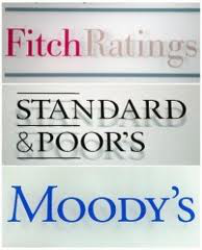June 23, 2019
Breaking news

The European Banking Union is based on supervision as much as on regulation: it concerns the operators as much as the structures of the sector, because the operators "hold" the sector.
This is why the "regulator - supervisor" holds the operators by the supervision and is close to them.
He meets them officially and in "soft law" relations. This is all the more necessary since the distinction between the Ex Ante and the Ex Post must be nuanced, in that its application is too rigid, in that it involves a long time (first of all the rules, then to apply them, then to notice a gap between rules and behaviors, then to repair it) is not appropriate if the system aims at the prevention of systemic crises, whose source is inside the operators.
This is why the body in charge of solving the difficulties of the systemic banks for the salvation of the systeme meets the banking sector itself, to ensure that they are permanently "resolvable", so that the hypothesis of their resolution never arises. This is the challenge of this system: that it is always ready, for never be applying.
____
In the European Banking Union, the Single Resolution Board (SRB) is in charge of "resolve" the difficulties of European systemic banks in difficulty. It is the public body of the second pillar of the Banking Union. The first pillar is the prevention of these difficulties and the third is the guarantee of deposits. The resolution is therefore more like an Ex Post mechanism.
But in this continuum through these three pillars between the Ex Ante and the Ex Post, the SRB does not wait passively - as would a traditional judge do - that the file of the troubled bank reaches it. Like a supervisor - which brings it closer to the first public in the system (Single Supervisory Board -SSB), which supervises all the banks, it is in direct contact with all the banks, and it approaches the hypothesis of a bank in trouble by a systemic perspective: it is therefore to the entire banking system that the SRB addresses itself.
As such, it organizes meetings, where he is located: in Brussels.
To resolve in Ex Post the difficulties of a bank, it has to present a quality (a little known concept in Bankruptcy Law): "resolvability". How build it? Who build it ? In its very design and in its application, bank by bank.
For the resolution body vis-à-vis all players in the banking and financial sector, it's clear: "Working together" is crucial in building resolvability ".
In the projection that is made, it is affirmed that there can be a successful resolution only if the operator in difficulty is not deprived of access to what makes to stay it alive, that is to say the banking and financial system itself, and more specifically the "Financial Market Infrastructures", for example payment services.
Does the Single Resolution Board expect spontaneous commitments from the FMIs for such a "right of access"? In this case, as the Single Resolution Board says, this right of access corresponds to "critical functions" for a bank, the resolution situation can not justify the closure of the service.
By nature, these crucial operators are entities that report to regulators who oversee them. Who enforces - and immediately - this right of access? When one can think that it is everyone, it risks being nobody .... That is why the resolution body, relaying in this a concern of the Financial Stability Board, underlines that it is necessary to articulate the supervisors, regulators and "resolvers" between them.
_____
To read this program, since it is a proposed program of work for the banking sector, four observations can be made:
1. We are moving more and more towards a general "intermaillage" (which will perhaps replace the absence of a global State, but it is an similar nature because it is always to public authorities that it refers and not to self-regulation);
2. But as there is no political authority to keep these guardians, the entities that articulate all these various public structures, with different functions, located in different countries, acting according to different temporalities, these are the companies themselves that internalize the concern that animates those who built the system: here the prevention of systemic risk. This is the definition of Compliance, which brings back to companies, here more clearly those those which manage the Market Infrastructures, the obligations of Compliance (here the management of systemic risk through the obligation of giving access).
3. Even without a single systemic guard, there is always a recourse. That will be the judge. There are already many, there will probably be more in a system of this type, more and more complex, the articulation of disputes is sometimes called "dialogue". And it is undoubtedly "decisions of principle" that will set the principles common to all of these particular organisms.
4. We then see the emergence of Ex Ante mechanisms for the solidity of the systems, and the solidity of the players in the systems, and then the Ex Post resolution of the difficulties of the actors according to access to the solidity of the infrastructures of these systems, which ultimately depend on judges (throughout the West) facing areas where all of this depends much less on the judge: the rest of the world.
____

May 20, 2015
Sectorial Analysis

March 3, 2015
Sectorial Analysis

Feb. 21, 2015
Breaking news

There was a time when the key was in the rule. Today is essentially in the effectiveness of the rule. What the English and Americans call: Enforcement.
When operators are very powerful and regulators have little information, when the rule is complex, when situations are always changing and diverse, most of the regulatory art focuses on enforcement.
It shows a little more the continuum between Ex ante and ex post, moreover the circularity between them. Not only sanction is necessary ex post to the regulatory body for the rules that it asked ex ante have an effectiveness, but conversely, if we want that breaches the rule that powerful operators are committed could be sanctioned, it is through the Ex ante they must be punished.
Thus, when a financial operator wants to raise funds in the US financial market, he must request authorization from the Regulator to do so or at least to declare beforehand. It is therefore an Ex Ante mechanism. But if the operator is trustworthy, then it can be a kind of privilege that allows him to raise funds without submitting to the heavy and lengthy procedure. It takes but just whether trusted opérator.
However, Reuters reported the next development by the SEC guidelines for applying its power to withdraw the exemption to operators which had broken the law, civil or criminal.
While this may be explained by the fact that these operators have shown they don't deserve the confidence that justified access to the status of "well-known seasoned issuer" (WKSI) offering this "privilege" exempting regulation.
This is especially a new crackdown. The withdrawal of that relief proceedings valuable to the operator who regularly raises funds on the market, making him reach the common lot of borrowers, making carrying a disadvantage compared to operators who respect the law and shall remain holders of "bureaucratic privilege".
In a regulation in which repression becomes the central arrow in the quiver, here is an acute .
It begs the question: claiming that it is within the Ex Ante, can the regulator be dispensed to apply the rights of the defense?

Feb. 12, 2015
Sectorial Analysis

There is no point in counting one by one the powers of a Regulator and add them to try to measure its power. We must measure what consideration the others have of the exercise of its powers it.
So it is with its advice power. Sometimes, in fact, its opinion is worth as much as if it adopted the text itself, as those who read its comments are impressed. Sometimes, the Regulator may have taken a rational opinion, motivated and relevant, those to whom it is addressed don't care.
The result is often that the Regulator takes note of this weakness against which strictly within the framework of this opinion mechanism the regulatory body can do nothing, but in a continuation of powers between the Ex Ante and the Ex post, because the area is an enclosed space, the diverse attitudes will be remembered, especially when the Regulator will be exercising its powers to resolve disputes or its power of sanctions. And there ...
Take the example of railway activities. The French Regulatory Authority of Railway Activities (Autorité de Régulation des Activités Ferroviaires - ARAF )) is a new regulator, in front of powerful actors, where the State has interests. The fact that these interests are legitimate don't remove the weight that such integrated public operator is facing the regulator. On 27 November 2014, ARAF expressed negative opinions about the main draft decrees. January 6, 2015, the Autorité de la Concurrence (French Competition Authority) has also made a critical opinion, including in its discontent and the law of "Railway Reform" and the draft decrees.
February 11, 2015, 7 decrees implementing the February 10, 2015 have been published. Adverse opinion on three of them by the regulator (ARAF) were swept away. We can admit quite, both regarding the Competition Authority opinion, since we are in terms of regulation and not in the simple competition system, and about ARAF opinion because its opinion is only a consultative and executive power remains in line with the will of Parliament. It's almost as if the Regulator had not said a word.
Thus, under the hierarchy of norms, in the letter and in spirit, the decrees are in line with the law they enforce. No blame.
But it is not excluded that the regulator of rail activities can remember of having been so little after, when it must be considered as a kind of judge in civil functions (dispute resolution) and in punitive functions (sanctions) that almost the same will appear before the regulatory body.
Updated: Nov. 26, 2012 (Initial publication: Nov. 26, 2012)
Breaking news

Updated: July 9, 2012 (Initial publication: July 1, 2012)
Breaking news

Updated: Jan. 4, 2012 (Initial publication: July 1, 2011)
Contributions

Updated: Jan. 4, 2012 (Initial publication: May 28, 2011)
Releases : I. Isolated Articles
Translated Summaries
ENGLISH
Two and a half years after having been established by the LME, the French Competition Authority has uncontestably acquired its “place in the sun” amongst the competition authorities of other countries, as demonstrated by multiple indicators.
ITALIAN
Articolo: L’Autorità garante della concorrenza tra “regolazione” e politica in materia di concorrenza
Due anni e mezzo dopo l’instaurazione da parte del LME, l’Autorità francese garante della libera concorrenza ha trovato il suo posto tra le diverse autorità degli altri paesi, così come è stato dimostrato da diversi indicatori.
SPANISH
Artículo: La Autoridad de la competencia, entre “regulación” y política competitiva.
Después de dos años y medio de haber sido establecido por el LME, la Autoridad francesa de la competencia ha incontestablemente adquirido su “lugar bajo el sol” entre las autoridades de la competencia de otros países, como demostrado por varios indicadores.
.....................
Other translations forthcoming.
Updated: Dec. 21, 2011 (Initial publication: Dec. 5, 2011)
Contributions
Article: Transmission unbundling as ex ante instrument of structural Regulation of the energy market

Updated: Dec. 12, 2011 (Initial publication: Dec. 5, 2011)
Releases : I. Isolated Articles

Translated Summaries
In The Journal of Regulation the summaries’ translation are done by the Editors and not by the authors
ENGLISH :
In order to establish a competitive energy market, the distribution infrastructure, as a monopolistic segment of energy networks, should be demonopolized. Instruments of economic regulation, which are often attributed ex ante character, are put in place to open the market and enable competitive forces. Unbundling is specific for it may also represent an ex post measure of a structural nature, exerted by competition protection authorities.
FRENCH
Afin d’établir un marché énergétique compétitif, l’infrastructure de distribution, en tant qu’il est un segment monopolistique des réseaux d’énergie, devrait être libéralisé. Les instruments de régulation économique, qui sont souvent attribués d’une façon ex ante, sont mises en place pour ouvrir le marché et rendent possibles les forces concurrentielles. Le dégroupage est spécifique, car il peut aussi représenter une mesure ex post de nature structurelle, exercée par les autorités de protection de la concurrence.
ITALIAN
Per costruire un mercato concorrenziale dell’energia, le infrastrutture di distribuzione, in quanto segmento monopolistico delle reti di energia, dovrebbero essere liberalizzate. A tal fine, sono applicati dei meccanismi di regolazione economica, spesso previsti ex ante, per aprire il mercato e permettere le forze concorrenziali. L’unbundling è particolare, in quanto potrebbe anche costituire un provvedimento ex post di natura strutturale, utilizzato dalle autorità di tutela della libera concorrenza.
....................
Other translations forthcoming.
Updated: Aug. 31, 2011 (Initial publication: June 9, 2011)
Contributions

Updated: Aug. 30, 2011 (Initial publication: June 3, 2011)
Contributions

Updated: June 28, 2011 (Initial publication: May 28, 2011)
Releases : I. Isolated Articles

ENGLISH
In the most developed nations, as in emerging countries, the economy and society are currently being entirely transformed by an industrial revolution originating in information and communication technologies.
Anti-competitive Behaviour Audacity - Autorité de Régulation des Communications Electroniques et des Postes (ARCEP - French Electronic Communications and Posts Regulator) - Communication - Competition - Confidence - Cooperation - Darwin - Digital revolution - Discrimination - European Commission - Ex ante / Ex post - Fiber optic - Future - impredictibility - Information - Infostructure - Infrastructure - Innovation - Internet - Lamarck - Napoleon - Network - Overregulation - Risk - Uncertainty - Underregulation *
* In The Journal of Regulation, these keywords are done by the Editor and not by the Author.
ITALIAN
Articolo: Innovazione e regolazione al servizio della rivoluzione digitale
Nelle nazioni le più sviluppate, nonché negli stati in via di sviluppo, l’economia e la società sono completamente trasformati da un rivoluzione industriale che trova le sue origini nelle teconologie d’informazione e di comunicazione.
Autorité de Régulation des Communications Electroniques et des Postes (ARCEP – Autorità francese di regolazione dei servizi postali e di telecomunicazione) – Commissione Europea - Comportamento anticoncorrenziale – Comunicazione – Concorrenza – Cooperazione – Darwin – Deregolamentazione - Discriminazione - Ex ante / Ex post – Fibra ottica – Imprevisibilità – Incertezza - Inflazione normativa - Informazione – Infostruttura – Infrastruttura – Innovazione – Internet – Lamarck – Napoleone – Rete – Rischio - Rivoluzione digitale *
* In The Journal of Regulation, le parole chiave sono responsabilità dell’Editore e non dall’Autore.
PORTUGUESE
Artigo: Inovação e Renovação a serviço da Revolução digital.
Nos países mais desenvolvidos, bem como nos em desenvolvimento, a economia e a sociedade vem sendo, atualmente, completamente transformados por uma revolução industrial baseada em tecnologias da informação e da comunicação.
Comportamento anti-concurrencial – Autoridade de regulação das comunicações eletrônicas e dos correios (ARCEP – Regulador francês de Comunicações e dos Correios) – Comunicação – Concorrência – Confiança – Cooperação – Darwin - Revolução digital – Discriminação – Comissão Europeia – Ex ante / Ex post – Fibra ótica – Futuro – Imprevisibilidade - Informação – Info-estrutura – Infra-estrutura – Inovação – Internet – Lamarck – Napoleão – Rede – Sobre-regulação – Risco – Incerteza – Sub-regulação.*
* No Journal of Regulation, as palavras-chave são fornecidas pelo Diretor, e não pelo Autor.
SPANISH
Artículo: Innovación y regulación sirviendo la revolución digital
En las naciones más desarrolladas, tal como en los países emergentes, la economía y la sociedad están actualmente siendo transformadas por una revolución industrial provenientes de las tecnologías informáticas y de telecomunicaciones.
Other translations forthcoming.
Updated: June 16, 2011 (Initial publication: May 27, 2011)
Releases : I. Isolated Articles
ENGLISH
Competition is the principle element of markets, in the princely sense of the term.The relationships that regulation maintains with competition are ambiguous. It is important to eliminate this ambiguity in order to reveal the ab initio opposition between regulation and competition, to shed light upon the dialectics between both of them. Indeed, regulation may aim at building competition, and is thereby presented as a tool that will cease being used when the competitive market functions effectively.
Administration - Autorité de Régulation des Communications électroniques et des Postes - Competition - Competition Authority - Conflict of intersts - Consumer - Contract - Equilibrium - European Commission - Ex ante / Ex post - Government - Hayek - Horyzontal regulation - Information asymmetry - Liberalisation - Market failure - Natural economic monopoly - Online gambling - Political mandate - Postal services - Power - Principle - Real economy - "Réglementation" - Regulator - Regulatory Authority - Self regulation - symmetrical regulation - Telecommunication - Tool - Watchdog *
* In The Journal of Regulation, these keywords are done by the Editor and not by the Author.
PORTUGUESE
Artigo: Regulação versus Concorrência
Concorrência é o principal elemento dos mercados, no mais genuíno sentido da palavra. As relações que regulação mantém com a concorrência são ambíguas. É importante eliminar essa ambiguidade de modo a relativizar a oposição ab initio entre regulação e concorrência, para trazer luz para a dialética entre elas. Com efeito, regulação pode tender a construir a concorrência, e é então apresentada como uma ferramenta que deixará de ser usada quando o mercado competitivo passar a funcionar realmente.
Administração – Autorité de Régulation des Communications électroniques et des Postes – Concorrência – Autoridade de concorrência – Conflito de interesse – Consumidor – Contrato – Equilíbrio – Comissão Europeia – Ex ante / Ex post – Governo – Hayek – Regulação horizontal – Informação assimétrica – Liberalização – Falha de mercado – Monopólio econômico natural – Jogo em linha – Mandato político – Serviços postais – Poder – Princípio – Economia real – Regulamentação – Regulador – Autoridade de regulação – Auto-regulação – Regulação simétrica – Telecomunicações – Ferramenta – Observador*
* No Journal of Regulation, as palavras-chave são fornecidas pelo Diretor, e não pelo Autor.
ITALIAN
Articolo: Regolazione vs. Concorrenza
La concorrenza è il principio fondamentale dei mercati, nel senso stretto del termine. Le relazioni tra regolazione e concorrenza sono ambigue. Per rivelare il contrasto tra regolazione e concorrenza è importante cancellare questa ambiguità e chiarire la dinamica di questi due concetti. In effetti, la regolazione punta a sviluppare la concorrenza ed è spesso considerata uno strumento che non avrà più ragion d’essere una volta che il mercato funzionerà in libera concorrenza.
Amministrazione - Asimmetria dell’informazione - Autoregolazione - Autorità di regolazione - Autorité de Régulation des Communications électroniques et des Postes - Autorità garante della concorrenza - Commissione Europea - Concorrenza - Conflitto di interessi - Contratto - Consumatore - Economia reale - Equilibrio - Ex ante / Ex post - Governo - Hayek - Liberalizzazione - Mancato Funzionamento del mercato - Monopolio economico naturale - Mandato politico - Potere - Principio - "Regolamentazione" - Regolatore - Regolazione orizzontale - Regolazione simmetrica - Servizi postali - Scommesse online - Strumento - Telecomunicazioni - Vigilanza *
* In The Journal of Regulation, le parole chiave sono responsabilità dell’Editore e non dall’Autore.
SPANISH
Artículo: Regulación versus la competencia
La competencia es el elemento principal de los mercados, en precisamente el sentido de este término. Es importante eliminar esta ambigüedad para poder revelar la posición ab initio entre la regulación y la competencia, para poder traer a luz las dialécticas entre las dos. Así tanto, la regulación puede intentar construir la competencia, y es, por consiguiente, un instrumento que cesará de ser utilizado cuando el mercado competitivo funcione de manera eficaz.
Other translations forthcoming.
